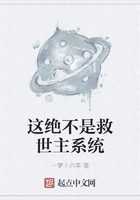FROM MY DISCOURSE with Mr. Lloyd, and from the above reported conference between Bessie and Abbot, I gathered enough of hope to suffice as a motive for wishing to get well: a change seemed near,—I desired and waited it in silence. It tarried, however: days and weeks passed: I had regained my normal state of health, but no new allusion was made to the subject over which I brooded. Mrs. Reed surveyed me at times with a severe eye, but seldom addressed me: since my illness, she had drawn a more marked line of separation than ever between me and her own children; appointing me a small closet to sleep in by myself, condemning me to take my meals alone, and pass all my time in the nursery, while my cousins were constantly in the drawing-room. Not a hint, however, did she drop about sending me to school: still I felt an instinctive certainty that she would not long endure me under the same roof with her; for her glance, now more than ever, when turned on me, expressed an insuperable and rooted aversion.
Eliza and Georgiana, evidently acting according to orders, spoke to me as little as possible: John thrust his tongue in his cheek whenever he saw me, and once attempted chastisement; but as I instantly turned against him, roused by the same sentiment of deep ire and desperate revolt which had stirred my corruption before, he thought it better to desist, and ran from me tittering execrations, and vowing I had burst his nose. I had indeed leveled at that prominent feature as hard a blow as my knuckles could inflict; and when I saw that either that or my look daunted him, I had the greatest inclination to follow up my advantage to purpose; but he was already with his mama. I heard him in a blubbering tone commence the tale of how "that nasty Jane Eyre" had flown at him like a mad cat: he was stopped rather harshly—
"Don't talk to me about her, John: I told you not to go near her; she is not worthy of notice; I do not choose that either you or your sisters should associate with her."
Here, leaning over the banister, I cried out suddenly, and without at all deliberating on my words—
"They are not fit to associate with me."
Mrs. Reed was rather a stout woman; but, on hearing this strange and audacious declaration, she ran nimbly up the stair, swept me like a whirlwind into the nursery, and crushing me down on the edge of my crib, dared me in an emphatic voice to rise from that place, or utter one syllable during the remainder of the day.
"What would Uncle Reed say to you, if he were alive?" was my scarcely voluntary demand. I say scarcely voluntary, for it seemed as if my tongue pronounced words without my will consenting to their utterance: something spoke out of me over which I had no control.
"What?" said Mrs. Reed under her breath: her usually cold composed grey eye became troubled with a look like fear; she took her hand from my arm, and gazed at me as if she really did not know whether I were child or fiend. I was now in for it.
"My Uncle Reed is in heaven, and can see all you do and think; and so can papa and mama: they know how you shut me up all day long, and how you wish me dead."
Mrs. Reed soon rallied her spirits: she shook me most soundly, she boxed both my ears, and then left me without a word. Bessie supplied the hiatus by a homily of an hour's length, in which she proved beyond a doubt that I was the most wicked and abandoned child ever reared under a roof. I half believed her; for I felt indeed only bad feelings surging in my breast.
November, December, and half of January passed away. Christmas and the New Year had been celebrated at Gateshead with the usual festive cheer; presents had been interchanged, dinners and evening parties given. From every enjoyment I was, of course, excluded: my share of the gaiety consisted in witnessing the daily appareling of Eliza and Georgiana, and seeing them descend to the drawing-room, dressed out in thin muslin frocks and scarlet sashes, with hair elaborately ringletted; and afterwards, in listening to the sound of the piano or the harp played below, to the passing to and fro of the butler and footman, to the jingling of glass and china as refreshments were handed, to the broken hum of conversation as the drawing-room door opened and closed. When tired of this occupation, I would retire from the stairhead to the solitary and silent nursery: there, though somewhat sad, I was not miserable. To speak truth, I had not the least wish to go into company, for in company I was very rarely noticed; and if Bessie had but been kind and companionable, I should have deemed it a treat to spend the evenings quietly with her, instead of passing them under the formidable eye of Mrs. Reed, in a room full of ladies and gentlemen. But Bessie, as soon as she had dressed her young ladies, used to take herself off to the lively regions of the kitchen and housekeeper's room, generally bearing the candle along with her. I then sat with my doll on my knee till the fire got low, glancing round occasionally to make sure that nothing worse than myself haunted the shadowy room; and when the embers sank to a dull red, I undressed hastily, tugging at knots and strings as I best might, and sought shelter from cold and darkness in my crib. To this crib I always took my doll; human beings must love something, and, in the dearth of worthier objects of affection, I contrived to find a pleasure in loving and cherishing a faded graven image, shabby as a miniature scarecrow. It puzzles me now to remember with what absurd sincerity I doated on this little toy, half fancying it alive and capable of sensation. I could not sleep unless it was folded in my night-gown; and when it lay there safe and warm, I was comparatively happy, believing it to be happy likewise.
Long did the hours seem while I waited the departure of the company, and listened for the sound of Bessie's step on the stairs: sometimes she would come up in the interval to seek her thimble or her scissors, or perhaps to bring me something by way of supper—a bun or a cheese-cake—then she would sit on the bed while I ate it, and when I had finished, she would tuck the clothes round me, and twice she kissed me, and said, "Good night, Miss Jane." When thus gentle, Bessie seemed to me the best, prettiest, kindest being in the world; and I wished most intensely that she would always be so pleasant and amiable, and never push me about, or scold, or task me unreasonably, as she was too often wont to do. Bessie Lee must, I think, have been a girl of good natural capacity, for she was smart in all she did, and had a remarkable knack of narrative; so, at least, I judge from the impression made on me by her nursery tales. She was pretty too, if my recollections of her face and person are correct. I remember her as a slim young woman, with black hair, dark eyes, very nice features, and good, clear complexion; but she had a capricious and hasty temper, and indifferent ideas of principle or justice: still, such as she was, I preferred her to any one else at Gateshead Hall.
It was the fifteenth of January, about nine o'clock in the morning: Bessie was gone down to breakfast; my cousins had not yet been summoned to their mama; Eliza was putting on her bonnet and warm garden-coat to go and feed her poultry, an occupation of which she was fond: and not less so of selling the eggs to the housekeeper and hoarding up the money she thus obtained. She had a turn for traffic, and a marked propensity for saving; shown not only in the vending of eggs and chickens, but also in driving hard bargains with the gardener about flower-roots, seeds, and slips of plants; that functionary having orders from Mrs. Reed to buy of his young lady all the products of her parterre she wished to sell: and Eliza would have sold the hair off her head if she could have made a handsome profit thereby. As to her money, she first secreted it in odd corners, wrapped in a rag or an old curl-paper; but some of these hoards having been discovered by the housemaid, Eliza, fearful of one day losing her valued treasure, consented to entrust it to her mother, at a usurious rate of interest—fifty or sixty per cent.; which interest she exacted every quarter, keeping her accounts in a little book with anxious accuracy.
Georgiana sat on a high stool, dressing her hair at the glass, and interweaving her curls with artificial flowers and faded feathers, of which she had found a store in a drawer in the attic. I was making my bed, having received strict orders from Bessie to get it arranged before she returned (for Bessie now frequently employed me as a sort of under- nursery maid, to tidy the room, dust the chairs.). Having spread the quilt and folded my night-dress, I went to the window-seat to put in order some picture-books and doll's house furniture scattered there; an abrupt command from Georgiana to let her playthings alone (for the tiny chairs and mirrors, the fairy plates and cups, were her property) stopped my proceedings; and then, for lack of other occupation, I fell to breathing on the frost-flowers with which the window was fretted, and thus clearing a space in the glass through which I might look out on the grounds, where all was still and petrified under the influence of a hard frost.
From this window were visible the porter's lodge and the carriage-road, and just as I had dissolved so much of the silver-white foliage veiling the panes as left room to look out, I saw the gates thrown open and a carriage roll through. I watched it ascending the drive with indifference; carriages often came to Gateshead, but none ever brought visitors in whom I was interested; it stopped in front of the house, the door-bell rang loudly, the new-comer was admitted. All this being nothing to me, my vacant attention soon found livelier attraction in the spectacle of a little hungry robin, which came and chirruped on the twigs of the leafless cherry-tree nailed against the wall near the casement. The remains of my breakfast of bread and milk stood on the table, and having crumbled a morsel of roll, I was tugging at the sash to put out the crumbs on the window-sill, when Bessie came running upstairs into the nursery.
"Miss Jane, take off your pinafore; what are you doing there? Have you washed your hands and face this morning?" I gave another tug before I answered, for I wanted the bird to be secure of its bread: the sash yielded; I scattered the crumbs, some on the stone sill, some on the cherry-tree bough, then, closing the window, I replied—
"No, Bessie; I have only just finished dusting."
"Troublesome, careless child! and what are you doing now? You look quite red, as if you had been about some mischief: what were you opening the window for?"
I was spared the trouble of answering, for Bessie seemed in too great a hurry to listen to explanations; she hauled me to the washstand, inflicted a merciless, but happily brief scrub on my face and hands with soap, water, and a coarse towel; disciplined my head with a bristly brush, denuded me of my pinafore, and then hurrying me to the top of the stairs, bid me go down directly, as I was wanted in the breakfast-room.
I would have asked who wanted me: I would have demanded if Mrs. Reed was there; but Bessie was already gone, and had closed the nursery-door upon me. I slowly descended. For nearly three months, I had never been called to Mrs. Reed's presence; restricted so long to the nursery, the breakfast, dining, and drawing-rooms were become for me awful regions, on which it dismayed me to intrude.
I now stood in the empty hall; before me was the breakfast-room door, and I stopped, intimidated and trembling. What a miserable little poltroon had fear, engendered of unjust punishment, made of me in those days! I feared to return to the nursery, and feared to go forward to the parlour; ten minutes I stood in agitated hesitation; the vehement ringing of the breakfast-room bell decided me; I must enter.
"Who could want me?" I asked inwardly, as with both hands I turned the stiff door-handle, which, for a second or two, resisted my efforts. "What should I see besides Aunt Reed in the apartment?—a man or a woman?" The handle turned, the door unclosed, and passing through and curtseying low, I looked up at—a black pillar!—such, at least, appeared to me, at first sight, the straight, narrow, sable-clad shape standing erect on the rug: the grim face at the top was like a carved mask, placed above the shaft by way of capital.
Mrs. Reed occupied her usual seat by the fireside; she made a signal to me to approach; I did so, and she introduced me to the stony stranger with the words: "This is the little girl respecting whom I applied to you."
He, for it was a man, turned his head slowly towards where I stood, and having examined me with the two inquisitive-looking grey eyes which twinkled under a pair of bushy brows, said solemnly, and in a bass voice, "Her size is small: what is her age?"
"Ten years."
"So much?" was the doubtful answer; and he prolonged his scrutiny for some minutes. Presently he addressed me—"Your name, little girl?"
"Jane Eyre, sir."
In uttering these words I looked up: he seemed to me a tall gentleman; but then I was very little; his features were large, and they and all the lines of his frame were equally harsh and prim.
"Well, Jane Eyre, and are you a good child?"
Impossible to reply to this in the affirmative: my little world held a contrary opinion: I was silent. Mrs. Reed answered for me by an expressive shake of the head, adding soon, "Perhaps the less said on that subject the better, Mr. Brocklehurst."
"Sorry indeed to hear it! she and I must have some talk;" and bending from the perpendicular, he installed his person in the arm-chair opposite Mrs. Reed's. "Come here," he said.
I stepped across the rug; he placed me square and straight before him. What a face he had, now that it was almost on a level with mine! what a great nose! and what a mouth! and what large prominent teeth!
"No sight so sad as that of a naughty child," he began, "especially a naughty little girl. Do you know where the wicked go after death?"
"They go to hell," was my ready and orthodox answer.
"And what is hell? Can you tell me that?"
"A pit full of fire."
"And should you like to fall into that pit, and to be burning there for ever?"
"No, sir."
"What must you do to avoid it?"
I deliberated a moment; my answer, when it did come, was objectionable: "I must keep in good health, and not die."
"How can you keep in good health? Children younger than you die daily. I buried a little child of five years old only a day or two since,—a good little child, whose soul is now in heaven. It is to be feared the same could not be said of you were you to be called hence."
Not being in a condition to remove his doubt, I only cast my eyes down on the two large feet planted on the rug, and sighed, wishing myself far enough away.
"I hope that sigh is from the heart, and that you repent of ever having been the occasion of discomfort to your excellent benefactress."
"Benefactress! benefactress!" said I inwardly: "they all call Mrs. Reed my benefactress; if so, a benefactress is a disagreeable thing."
"Do you say your prayers night and morning?" continued my interrogator.
"Yes, sir."
"Do you read your Bible?"
"Sometimes."
"With pleasure? Are you fond of it?"
"I like Revelations, and the book of Daniel, and Genesis and Samuel, and a little bit of Exodus, and some parts of Kings and Chronicles, and Job and Jonah."
"And the Psalms? I hope you like them?"
"No, sir."
"No? oh, shocking! I have a little boy, younger than you, who knows six Psalms by heart: and when you ask him which he would rather have, a gingerbread-nut to eat or a verse of a Psalm to learn, he says: 'Oh! the verse of a Psalm! angels sing Psalms;' says he, 'I wish to be a little angel here below;' he then gets two nuts in recompense for his infant piety."
"Psalms are not interesting," I remarked.
"That proves you have a wicked heart; and you must pray to God to change it: to give you a new and clean one: to take away your heart of stone and give you a heart of flesh."
I was about to propound a question, touching the manner in which that operation of changing my heart was to be performed, when Mrs. Reed interposed, telling me to sit down; she then proceeded to carry on the conversation herself.
"Mr. Brocklehurst, I believe I intimated in the letter which I wrote to you three weeks ago, that this little girl has not quite the character and disposition I could wish: should you admit her into Lowood school, I should be glad if the superintendent and teachers were requested to keep a strict eye on her, and, above all, to guard against her worst fault, a tendency to deceit. I mention this in your hearing, Jane, that you may not attempt to impose on Mr. Brocklehurst."
Well might I dread, well might I dislike Mrs. Reed; for it was her nature to wound me cruelly; never was I happy in her presence; however carefully I obeyed, however strenuously I strove to please her, my efforts were still repulsed and repaid by such sentences as the above. Now, uttered before a stranger, the accusation cut me to the heart; I dimly perceived that she was already obliterating hope from the new phase of existence which she destined me to enter; I felt, though I could not have expressed the feeling, that she was sowing aversion and unkindness along my future path; I saw myself transformed under Mr. Brocklehurst's eye into an artful, noxious child, and what could I do to remedy the injury?
"Nothing, indeed," thought I, as I struggled to repress a sob, and hastily wiped away some tears, the impotent evidences of my anguish.
"Deceit is, indeed, a sad fault in a child," said Mr. Brocklehurst; "it is akin to falsehood, and all liars will have their portion in the lake burning with fire and brimstone; she shall, however, be watched, Mrs. Reed. I will speak to Miss Temple and the teachers."
"I should wish her to be brought up in a manner suiting her prospects," continued my benefactress; "to be made useful, to be kept humble: as for the vacations, she will, with your permission, spend them always at Lowood."
"Your decisions are perfectly judicious, madam," returned Mr. Brocklehurst. "Humility is a Christian grace, and one peculiarly appropriate to the pupils of Lowood; I, therefore, direct that especial care shall be bestowed on its cultivation amongst them. I have studied how best to mortify in them the worldly sentiment of pride; and, only the other day, I had a pleasing proof of my success. My second daughter, Augusta, went with her mama to visit the school, and on her return she exclaimed: 'Oh, dear papa, how quiet and plain all the girls at Lowood look, with their hair combed behind their ears, and their long pinafores, and those little holland pockets outside their frocks—they are almost like poor people's children! and,' said she, 'they looked at my dress and mama's, as if they had never seen a silk gown before.'"
"This is the state of things I quite approve," returned Mrs. Reed; "had I sought all England over, I could scarcely have found a system more exactly fitting a child like Jane Eyre. Consistency, my dear Mr. Brocklehurst; I advocate consistency in all things."
"Consistency, madam, is the first of Christian duties; and it has been observed in every arrangement connected with the establishment of Lowood: plain fare, simple attire, unsophisticated accommodations, hardy and active habits; such is the order of the day in the house and its inhabitants."
"Quite right, sir. I may then depend upon this child being received as a pupil at Lowood, and there being trained in conformity to her position and prospects?"
"Madam, you may: she shall be placed in that nursery of chosen plants, and I trust she will show herself grateful for the inestimable privilege of her election."
"I will send her, then, as soon as possible, Mr. Brocklehurst; for, I assure you, I feel anxious to be relieved of a responsibility that was becoming too irksome."
"No doubt, no doubt, madam; and now I wish you good morning. I shall return to Brocklehurst Hall in the course of a week or two: my good friend, the Archdeacon, will not permit me to leave him sooner. I shall send Miss Temple notice that she is to expect a new girl, so that there will be no difficulty about receiving her. Good-bye."
"Good-bye, Mr. Brocklehurst; remember me to Mrs. and Miss Brocklehurst, and to Augusta and Theodore, and Master Broughton Brocklehurst."
"I will, madam. Little girl, here is a book entitled the'Child's Guide,' read it with prayer, especially that part containing 'An account of the awfully sudden death of Martha G—-, a naughty child addicted to falsehood and deceit.'"
With these words Mr. Brocklehurst put into my hand a thin pamphlet sewn in a cover, and having rung for his carriage, he departed.
Mrs. Reed and I were left alone: some minutes passed in silence; she was sewing, I was watching her. Mrs. Reed might be at that time some six or seven and thirty; she was a woman of robust frame, square-shouldered and strong-limbed, not tall, and, though stout, not obese: she had a somewhat large face, the under jaw being much developed and very solid; her brow was low, her chin large and prominent, mouth and nose sufficiently regular; under her light eyebrows glimmered an eye devoid of ruth; her skin was dark and opaque, her hair nearly flaxen; her constitution was sound as a bell—illness never came near her; she was an exact, clever manager; her household and tenantry were thoroughly under her control; her children only at times defied her authority and laughed it to scorn; she dressed well, and had a presence and port calculated to set off handsome attire.
Sitting on a low stool, a few yards from her arm-chair, I examined her figure; I perused her features. In my hand I held the tract containing the sudden death of the Liar, to which narrative my attention had been pointed as to an appropriate warning. What had just passed; what Mrs. Reed had said concerning me to Mr. Brocklehurst; the whole tenor of their conversation, was recent, raw, and stinging in my mind; I had felt every word as acutely as I had heard it plainly, and a passion of resentment fomented now within me.
Mrs. Reed looked up from her work; her eye settled on mine, her fingers at the same time suspended their nimble movements.
"Go out of the room; return to the nursery," was her mandate. My look or something else must have struck her as offensive, for she spoke with extreme though suppressed irritation. I got up, I went to the door; I came back again; I walked to the window, across the room, then close up to her.
Speak I must: I had been trodden on severely, and must turn: but how? What strength had I to dart retaliation at my antagonist? I gathered my energies and launched them in this blunt sentence—
"I am not deceitful: if I were, I should say I loved you; but I declare I do not love you: I dislike you the worst of anybody in the world except John Reed; and this book about the liar, you may give to your girl, Georgiana, for it is she who tells lies, and not I."
Mrs. Reed's hands still lay on her work inactive: her eye of ice continued to dwell freezingly on mine.
"What more have you to say?" she asked, rather in the tone in which a person might address an opponent of adult age than such as is ordinarily used to a child.
That eye of hers, that voice stirred every antipathy I had. Shaking from head to foot, thrilled with ungovernable excitement, I continued—
"I am glad you are no relation of mine: I will never call you aunt again as long as I live. I will never come to see you when I am grown up; and if any one asks me how I liked you, and how you treated me, I will say the very thought of you makes me sick, and that you treated me with miserable cruelty."
"How dare you affirm that, Jane Eyre?"
"How dare I, Mrs. Reed? How dare I? Because it is the truth. You think I have no feelings, and that I can do without one bit of love or kindness; but I cannot live so: and you have no pity. I shall remember how you thrust me back—roughly and violently thrust me back—into the red-room, and locked me up there, to my dying day; though I was in agony; though I cried out, while suffocating with distress, 'Have mercy! Have mercy, Aunt Reed!' And that punishment you made me suffer because your wicked boy struck me—knocked me down for nothing. I will tell anybody who asks me questions, this exact tale. People think you a good woman, but you are bad, hard-hearted. You are deceitful!"
Ere I had finished this reply, my soul began to expand, to exult, with the strangest sense of freedom, of triumph, I ever felt. It seemed as if an invisible bond had burst, and that I had struggled out into unhoped- for liberty. Not without cause was this sentiment: Mrs. Reed looked frightened; her work had slipped from her knee; she was lifting up her hands, rocking herself to and fro, and even twisting her face as if she would cry.
"Jane, you are under a mistake: what is the matter with you? Why do you tremble so violently? Would you like to drink some water?"
"No, Mrs. Reed."
"Is there anything else you wish for, Jane? I assure you, I desire to be your friend."
"Not you. You told Mr. Brocklehurst I had a bad character, a deceitful disposition; and I'll let everybody at Lowood know what you are, and what you have done."
"Jane, you don't understand these things: children must be corrected for their faults."
"Deceit is not my fault!" I cried out in a savage, high voice.
"But you are passionate, Jane, that you must allow: and now return to the nursery—there's a dear—and lie down a little."
"I am not your dear; I cannot lie down: send me to school soon, Mrs. Reed, for I hate to live here."
"I will indeed send her to school soon," murmured Mrs. Reed sotto voce; and gathering up her work, she abruptly quitted the apartment.
I was left there alone—winner of the field. It was the hardest battle I had fought, and the first victory I had gained: I stood awhile on the rug, where Mr. Brocklehurst had stood, and I enjoyed my conqueror's solitude. First, I smiled to myself and felt elate; but this fierce pleasure subsided in me as fast as did the accelerated throb of my pulses. A child cannot quarrel with its elders, as I had done; cannot give its furious feelings uncontrolled play, as I had given mine, without experiencing afterwards the pang of remorse and the chill of reaction. A ridge of lighted heath, alive, glancing, devouring, would have been a meet emblem of my mind when I accused and menaced Mrs. Reed: the same ridge, black and blasted after the flames are dead, would have represented as meetly my subsequent condition, when half-an-hour's silence and reflection had shown me the madness of my conduct, and the dreariness of my hated and hating position.
Something of vengeance I had tasted for the first time; as aromatic wine it seemed, on swallowing, warm and racy: its after-flavour, metallic and corroding, gave me a sensation as if I had been poisoned. Willingly would I now have gone and asked Mrs. Reed's pardon; but I knew, partly from experience and partly from instinct, that was the way to make her repulse me with double scorn, thereby re-exciting every turbulent impulse of my nature.
I would fain exercise some better faculty than that of fierce speaking; fain find nourishment for some less fiendish feeling than that of somber indignation. I took a book—some Arabian tales; I sat down and endeavoured to read. I could make no sense of the subject; my own thoughts swam always between me and the page I had usually found fascinating. I opened the glass-door in the breakfast-room: the shrubbery was quite still: the black frost reigned, unbroken by sun or breeze, through the grounds. I covered my head and arms with the skirt of my frock, and went out to walk in a part of the plantation which was quite sequestrated; but I found no pleasure in the silent trees, the falling fir-cones, the congealed relics of autumn, russet leaves, swept by past winds in heaps, and now stiffened together. I leaned against a gate, and looked into an empty field where no sheep were feeding, where the short grass was nipped and blanched. It was a very grey day; a most opaque sky, "onding on snaw," canopied all; thence flakes felt it intervals, which settled on the hard path and on the hoary lea without melting. I stood, a wretched child enough, whispering to myself over and over again, "What shall I do?—what shall I do?"
All at once I heard a clear voice call, "Miss Jane! where are you? Come to lunch!"
It was Bessie, I knew well enough; but I did not stir; her light step came tripping down the path.
"You naughty little thing!" she said. "Why don't you come when you are called?"
Bessie's presence, compared with the thoughts over which I had been brooding, seemed cheerful; even though, as usual, she was somewhat cross. The fact is, after my conflict with and victory over Mrs. Reed, I was not disposed to care much for the nursemaid's transitory anger; and I was disposed to bask in her youthful lightness of heart. I just put my two arms round her and said, "Come, Bessie! don't scold."
The action was more frank and fearless than any I was habituated to indulge in: somehow it pleased her.
"You are a strange child, Miss Jane," she said, as she looked down at me; "a little roving, solitary thing: and you are going to school, I suppose?"
I nodded.
"And won't you be sorry to leave poor Bessie?"
"What does Bessie care for me? She is always scolding me."
"Because you're such a queer, frightened, shy little thing. You should be bolder."
"What! to get more knocks?"
"Nonsense! But you are rather put upon, that's certain. My mother said, when she came to see me last week, that she would not like a little one of her own to be in your place.—Now, come in, and I've some good news for you."
"I don't think you have, Bessie."
"Child! what do you mean? What sorrowful eyes you fix on me! Well, but Missis and the young ladies and Master John are going out to tea this afternoon, and you shall have tea with me. I'll ask cook to bake you a little cake, and then you shall help me to look over your drawers; for I am soon to pack your trunk. Missis intends you to leave Gateshead in a day or two, and you shall choose what toys you like to take with you."
"Bessie, you must promise not to scold me any more till I go."
"Well, I will; but mind you are a very good girl, and don't be afraid of me. Don't start when I chance to speak rather sharply; it's so provoking."
"I don't think I shall ever be afraid of you again, Bessie, because I have got used to you, and I shall soon have another set of people to dread."
"If you dread them they'll dislike you."
"As you do, Bessie?"
"I don't dislike you, Miss; I believe I am fonder of you than of all the others."
"You don't show it."
"You little sharp thing! you've got quite a new way of talking. What makes you so venturesome and hardy?"
"Why, I shall soon be away from you, and besides"—I was going to say something about what had passed between me and Mrs. Reed, but on second thoughts I considered it better to remain silent on that head.
"And so you're glad to leave me?"
"Not at all, Bessie; indeed, just now I'm rather sorry."
"Just now! and rather! How coolly my little lady says it! I dare say now if I were to ask you for a kiss you wouldn't give it me: you'd say you'd rather not."
"I'll kiss you and welcome: bend your head down." Bessie stooped; we mutually embraced, and I followed her into the house quite comforted. That afternoon lapsed in peace and harmony; and in the evening Bessie told me some of her most enchanting stories, and sang me some of her sweetest songs. Even for me life had its gleams of sunshine.















